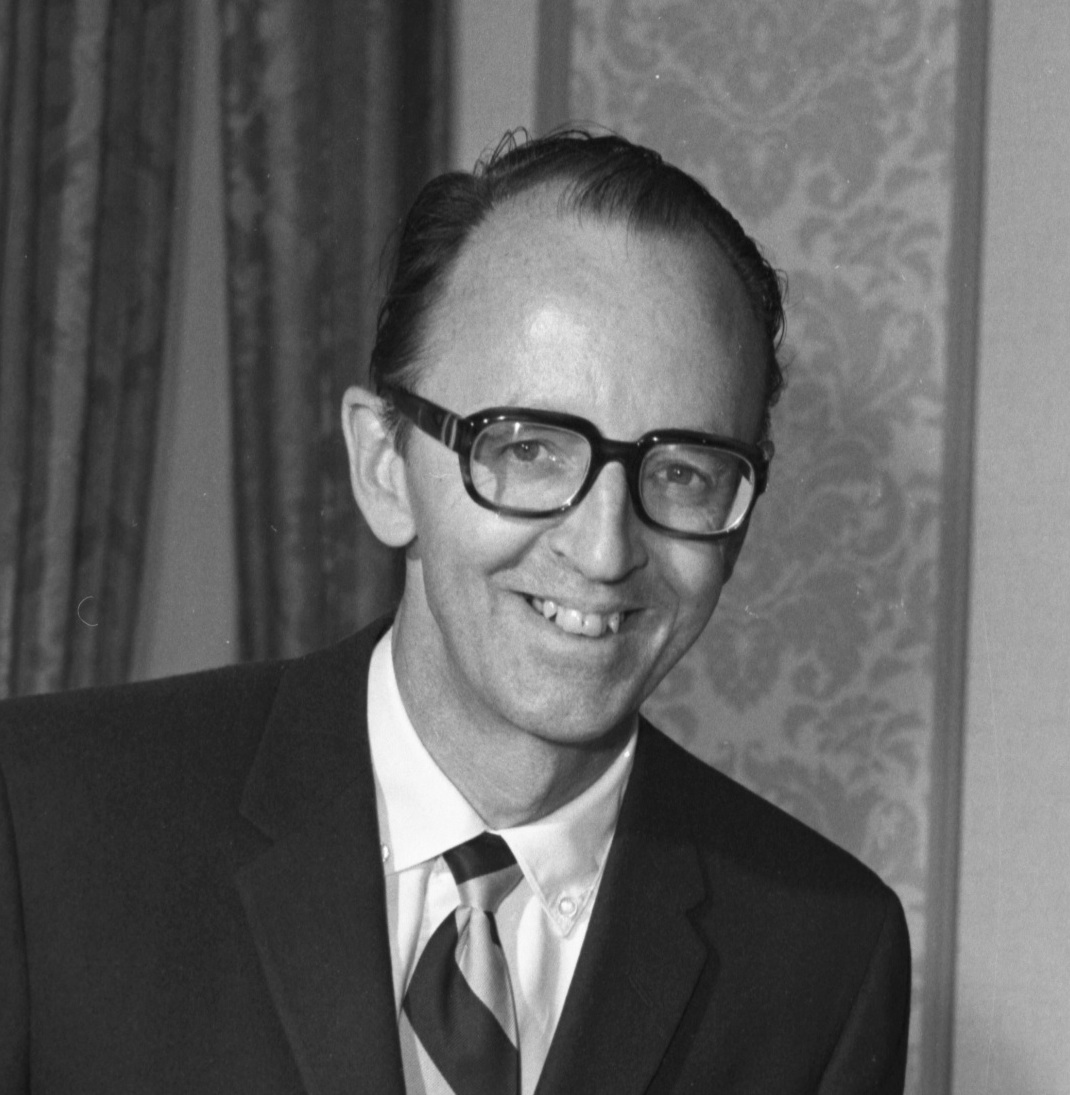Rod Sykes was Mayor of Calgary from 1969 to 1977. Three consecutive terms is not a bad run for the chief magistrate of any big Canadian city.
During that time, through his remarkable force of personality, the one-time CPR real estate executive put in motion major projects that continue to benefit Alberta’s largest city, among them development of Calgary’s downtown convention centre and the city’s sprawling light-rail transit system.
Yet, as my friend and former Calgary Herald colleague Andy Marshall told me recently, one of the puzzles of the legacy of James Rodney Winter Sykes is that “there’s not even one pathetic street of drab, look-alike houses named after him. Not a cul-de-sac!“
For heaven’s sake, he said, every year the University of Calgary “drags out C-grade personalities for an honorary degree, and Rod has never made the cut!”
Marshall, who served on Mayor Sykes’ staff for three years during a break from a long and productive career as an Alberta journalist and again for a short time during the former mayor’s short unhappy leadership of the Alberta Social Credit Party, set himself the task of remedying this situation in Thin Power, How Former Calgary Mayor Rod Sykes Stamped His Brand on the City … And Scorched Some Sacred Cows.
What began as an authorized biography of Sykes, however, didn’t make the cut with the former mayor, who at 87 is apparently as feisty as ever.
So while Marshall is clearly a Rod Sykes admirer — “I marvelled at the fearlessness, the unvarnished outrageousness of this ectomorphic oddball; not to mention his iron will to complete worthwhile projects,” writes the author in his book’s introduction — Thin Power was fated to be published without Sykes’ imprimatur.
Well, if readers will forgive my language, Sykes probably just pissed off too many powerful people, the sort of folks who don’t forget and whose connections run deep in a place like Calgary, which, as another former Alberta journalist of my acquaintance used to put it, “has all the vices of a small town and none of the graces.”
A beanpole, Sykes described himself with more than a little justice as “God’s gift to cartoonists.” He was a gift to old-style journalists too, since he was never afraid of a noisy public fight with anyone, including the most powerful members of Cowtown’s establishment — and that inevitably meant many of the people most municipal politicians are, with justice, terrified to cross.
Not Rod Sykes. The Chamber of Commerce, the almighty Stampede Board and the Calgary Herald, which in those long-gone days saw itself as the Newspaper of Record of Southern Alberta, all felt the sting of Sykes’ wrath. He once publicly described yet another of my former fellow Herald colleagues as a “chicken-shit operator,” prompting the paper’s headline writers to solemnly declare, “Mayor uses fowl language on reporter.”
It certainly didn’t hurt, Marshall suggests, that as an accountant by profession, the Montreal-born, Vancouver Island-raised mayor’s “hawk-eyed accountancy skills” enabled him to spot and root out the cozy financial relationships with government that can thrive in places like Calgary.
Sykes believed, and Marshall clearly agrees, that when he left office in 1977, “the city’s structure had been updated or plans were in place for their renewal and expansion over the next 20 years.” After that, as Sykes saw it, mayors like Ralph Klein and Al Duerr squandered what he had built by neglecting city services and allowing the mayor’s authority to be diluted to the point Klein, as premier, could declaw mayors’ powers in the revised Municipal Government Act of 1995. By the sound of Marshall’s description, though, Sykes has been characteristically none too impressed by any of the mayors that followed in his footsteps.
Despite his well-known (and not-quite-so-widely admired) refusal to suffer fools gladly, or at all, Sykes was able to build what Marshall calls “an amazingly broad coalition of support” that enabled him to overcome the opposition of his powerful and well-connected fellow citizens.
In this, Marshall told me in a recent note, Sykes’ appeal was in some ways not unlike that of Donald Trump, President-elect of the United States. “Rod Sykes obviously was far more intelligent, far more self-aware, understood the benefits of cultural diversity, was far more empathic, far less selfish, and he certainly was not a serial groper. But he did circumvent — or even write off — large sections of the population … and still maintain a solid core of support.”
“Rod Sykes was infinitely more intelligent, eloquent, empathic, truthful and balanced, but he may have shared a similar ruthlessness that we see becoming more of a norm today in public affairs,” Marshall added.
Sykes once explained his vehement and aggressive debating style with this strong metaphor: “When you have someone down, don’t walk away with them still breathing.”
“Being outspoken offends people unaccustomed to straight talk,” Marshall quotes Sykes as explaining. That may have been unusual in the Canadian politics of the 1970s, but, as Marshall observed, while it offended people, it did get things done. “I generally respected him for that ability to be a head-butter,” says the always mildly spoken Marshall. “Others certainly didn’t.”
Marshall’s book is the only biography of Rod Sykes to be published to date. To buy a copy, go to AndyPMarshall.com or Friesen Books.
Marshall will read from Thin Power next Monday, Nov. 28, at 7 p.m. at Calgary’s Owl’s Nest Books, 815A 49th Ave. S.W.
This post also appears on David Climenhaga’s blog, AlbertaPolitics.ca.
Like this article? Please chip in to keep stories like these coming.



